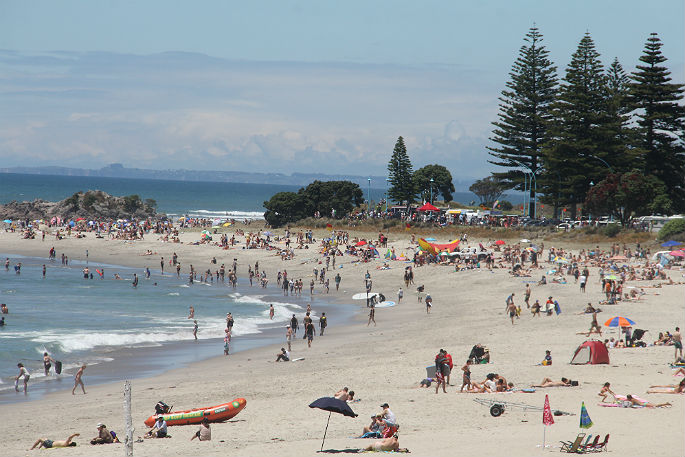It was a positive weekend on New Zealand’s beaches, with surf lifeguards reporting good safety awareness among swimmers and only two rescues carried out across the country.
At Red Beach Surf Life Saving Club, volunteer surf lifeguards assisted an upturned trailer sailer and monitored its safe return to shore, while after patrol, off-duty lifeguards in Raglan Beach rescued a kite surfer reported to be in distress.
After a busy start to summer involving a large volume of rescues and some early fatal drownings across the country, Surf Life Saving New Zealand is incredibly pleased to see beachgoers following advice to swim between the flags this weekend and urges everyone to continue making safety a priority this summer.
“We’re thrilled to see so many people staying safe at the beach over the weekend,” said Andy Kent, SLSNZ General Manager - Lifesaving.
"By swimming between the flags and staying informed, people are helping us keep them safe. It’s a team effort, and we encourage anyone visiting the beach to keep up the great work as summer continues."
As the weather warms up, SLSNZ encourages beachgoes to plan their beach visits carefully. Check Safeswim to find a lifeguarded beach, and always swim between the red and yellow flags.
Surf lifeguards are there to watch for hazards, monitor changing conditions, and respond quickly if needed.
“Quite simply, a surf lifeguard is very often the difference between life and death,” says Andy.
For more beach safety tips, visit the SLSNZ Website.
Key Safety Messages: 2024/25 season
1. Know How To Float - Me Mōhio koe me Pēhea te Mānu
If you don’t know how to float, don’t go into the water.
Just being able to float when you are in the water can increase your chance of survival. Floating allows you to calm yourself and keep your airways out of the water. It is also the first thing to do if you get caught in a rip.
If you don’t know how to float well, practice or get some lessons in a pool before you head to the beach - being able to float is a key skill when learning to swim. Anyone can learn to float but some people may take a little longer to learn.
2. Find The Safest Place To Swim - Kimihia te Wāhi Haumaru Rawa Ki Te Kaukau
Remember if you are heading to the beach, check www.safeswim.org.nz to find a lifeguarded beach, and always swim between the red and yellow flags, which show the safest place to swim. The surf lifeguards are there to help keep beachgoers safe, by keeping a constant eye on sea as they continuously scan for hazards or people in difficulty, keeping on top of weather forecasts and understanding the swell and tide conditions too.
3. If In Doubt, Stay Out - Mehemea e Rangirua Ana, Me Noho Ki Waho
Waves can be bigger than they look, dangerous rip currents are hard to spot and weather conditions can be unpredictable. If you feel uncomfortable about getting into the water, stay out. It’s better to be safe than sorry. Too many people get into trouble in the water because they overestimate their abilities and underestimate the conditions.
4. Take Care of Others - Tiakina te Tangata
Always keep children within arm’s reach in or near the water. Waves can move quickly and unexpectedly and can knock kids off their feet and sweep them away. Everyone has different levels of ability, so watch out for your mates too.
5. Know How to Get Help - Me Mōhio koe me Pēhea te Kimi Āwhina
If someone in the water is in trouble and surf lifeguards are on patrol, let them know. If you can’t see any surf lifeguards, call 111 and ask for police. Police have a direct line to surf lifeguards and others who can help.
If you’re in the water and in trouble yourself, signal for help.



0 comments
Leave a Comment
You must be logged in to make a comment.